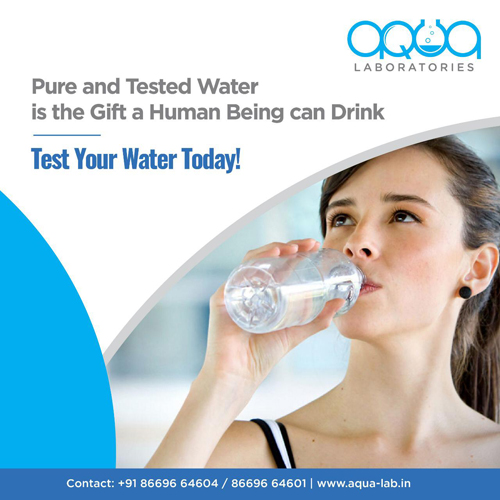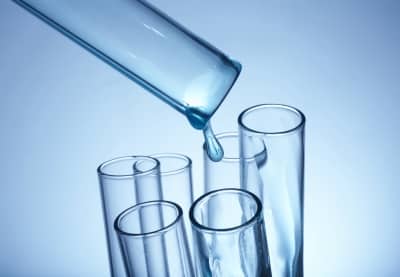Learn Exactly How Water Testing Can Identify Impurities and Protect Your Household's Wellness
Understanding the value of water screening is important for safeguarding your household's wellness, as our water supply can harbor undetected risks. By discovering the mechanics of water testing, one can reveal the invisible risks prowling in seemingly immaculate water resources.
Value of Water Evaluating
Identifying the crucial function water plays in sustaining life, the significance of water screening can not be overstated. Making sure that water is complimentary from hazardous compounds is essential for maintaining healthy and balanced neighborhoods and ecological communities. Water Testing Services Near Me.
Water screening serves as a proactive action to identify potential dangers that might compromise water quality. With methodical analysis, it assists find physical, chemical, and organic criteria that can pose risks to human health and wellness. Routine testing permits the early detection of issues, assisting in prompt treatments to avoid prevalent contamination and linked wellness troubles.
Furthermore, water testing supports governing compliance, ensuring that water suppliers fulfill well established safety and security requirements and guidelines set by governmental authorities. It cultivates openness and liability, constructing public count on the water system. Screening supplies important data that notifies water administration strategies, making it possible for lasting use and conservation of this priceless resource.
Basically, water screening is a crucial device that safeguards public health, ensures regulative adherence, and advertises the sustainable administration of water resources. Its importance in shielding both individuals and communities can not be underestimated.
Usual Water Impurities
Among the different aspects that can jeopardize water quality, typical water pollutants consist of a range of physical, chemical, and biological compounds that present substantial dangers to human health and wellness and the setting. Physical impurities frequently entail debris or natural products suspended in water, which can affect clearness and taste.
Organic contaminants, primarily germs, viruses, and protozoa, emerge from animal and human waste getting in water supply. Virus such as E. coli, Giardia, and Cryptosporidium are infamous for creating stomach illnesses and can be specifically hazardous to young kids, the elderly, and those with compromised body immune systems. Nitrates and nitrites, frequently stemming from fertilizers, pose another health threat, specifically to infants, potentially causing conditions like methemoglobinemia or "blue baby syndrome."
In addition, arising pollutants, including pharmaceuticals and individual care items, have raised concerns because of their determination and unknown lasting effects. Understanding these contaminants is crucial for implementing efficient water therapy strategies and making sure safe drinking water.
How Water Testing Functions
Comprehending the range of impurities in water highlights the importance of reliable screening methods to guard public health and wellness. Water testing is an organized process designed to determine and measure different impurities that might pose dangers to human health. This entails a series of logical procedures that identify contaminants such as microorganisms, heavy steels, organic chemicals, and various other pollutants. The testing procedure commonly begins with example collection from the water resource, making sure that examples are representative and unpolluted throughout the collection procedure.
When samples are gathered, they undergo research laboratory analysis utilizing different strategies. Chemical screening usually includes spectrometry or chromatography, both of which can identify and measure particular chemical compounds. For microbiological testing, approaches such as membrane purification or enzyme substrate tests are used to identify pathogenic microorganisms. Additionally, physical qualities like turbidity, ph, and shade are examined to give understanding into the overall quality of the water.
The precise techniques employed in water screening depend upon the certain contaminants of problem and the water's intended usage. By regularly applying these extensive testing protocols, researchers and public health authorities can make sure the security and top quality of water, thus securing communities from potential wellness dangers.
Selecting the Right Test
Just how does one figure out one of the most proper water test for their demands? Choosing the ideal test entails understanding both the particular qualities of the water source and the prospective contaminants that might exist. The initial step is analyzing the water resource-- be it community, well, or surface water-- as each has distinct risks. Local water could require testing for disinfectant by-products, while well water might require screening for nitrates, germs, and heavy steels.
Following, think about recent events and environmental elements. Close-by farming tasks may demand screening for herbicides and pesticides, whereas commercial areas could require checks for chemical pollutants. Additionally, any modifications in water odor, appearance, or taste ought to motivate details screening for usual impurities like lead, chlorine, or biological microorganisms.
Expert water testing services provide comprehensive packages that target a variety of potential pollutants. These packages usually straighten with standards established by the Epa (EPA) or neighborhood health divisions. For a much more tailored method, seeking advice from with a water quality specialist can supply insights into which specific examinations are needed based on local problems check this and individual wellness requirements, guaranteeing the protection of your house's well-being.

Keeping Water Safety And Security

In addition to testing, appropriate upkeep of water supply plays an essential duty. This includes checking and servicing pipes systems, storage space tanks, and septic systems to stop leaks or backflow that can present contaminants - Water Testing Service. Employing water purification systems created to attend go to my site to specific local issues can even more protect against contaminations, offering an extra layer of protection
Public awareness and education and learning are just as important in maintaining water safety. Areas must be educated about potential threats related to neighborhood water sources and the essential actions to reduce them. Urging public engagement in water safety and security campaigns promotes a collective duty that boosts total efficiency.
Ultimately, a comprehensive method that incorporates routine testing, system upkeep, and community participation is vital in protecting water quality. By doing so, households can be ensured of tidy and risk-free water, protecting their wellness and well-being.

Conclusion
Regular water testing is important for recognizing contaminants such as germs, heavy steels, and chemicals that pose health and wellness threats. By examining water samples, hidden dangers can be found, making certain the provision of risk-free alcohol this link consumption water. This aggressive method helps create a healthier atmosphere and promotes educated decision-making concerning water safety. Selecting proper testing methods and maintaining watchfulness in water high quality are crucial action in securing public health and wellness and making certain the health of all household members.
Understanding the significance of water testing is crucial for securing your household's health and wellness, as our water supply can harbor hidden risks.Water testing serves as a proactive step to identify potential threats that might compromise water high quality.Additionally, water testing supports governing conformity, guaranteeing that water providers satisfy well established safety and security criteria and standards set by governmental authorities. Community water could require testing for disinfectant byproducts, while well water may require testing for nitrates, microorganisms, and heavy metals.
Normal water testing is an essential element in maintaining the top quality of water sources, making it possible for prompt treatments before impurities reach unsafe degrees.